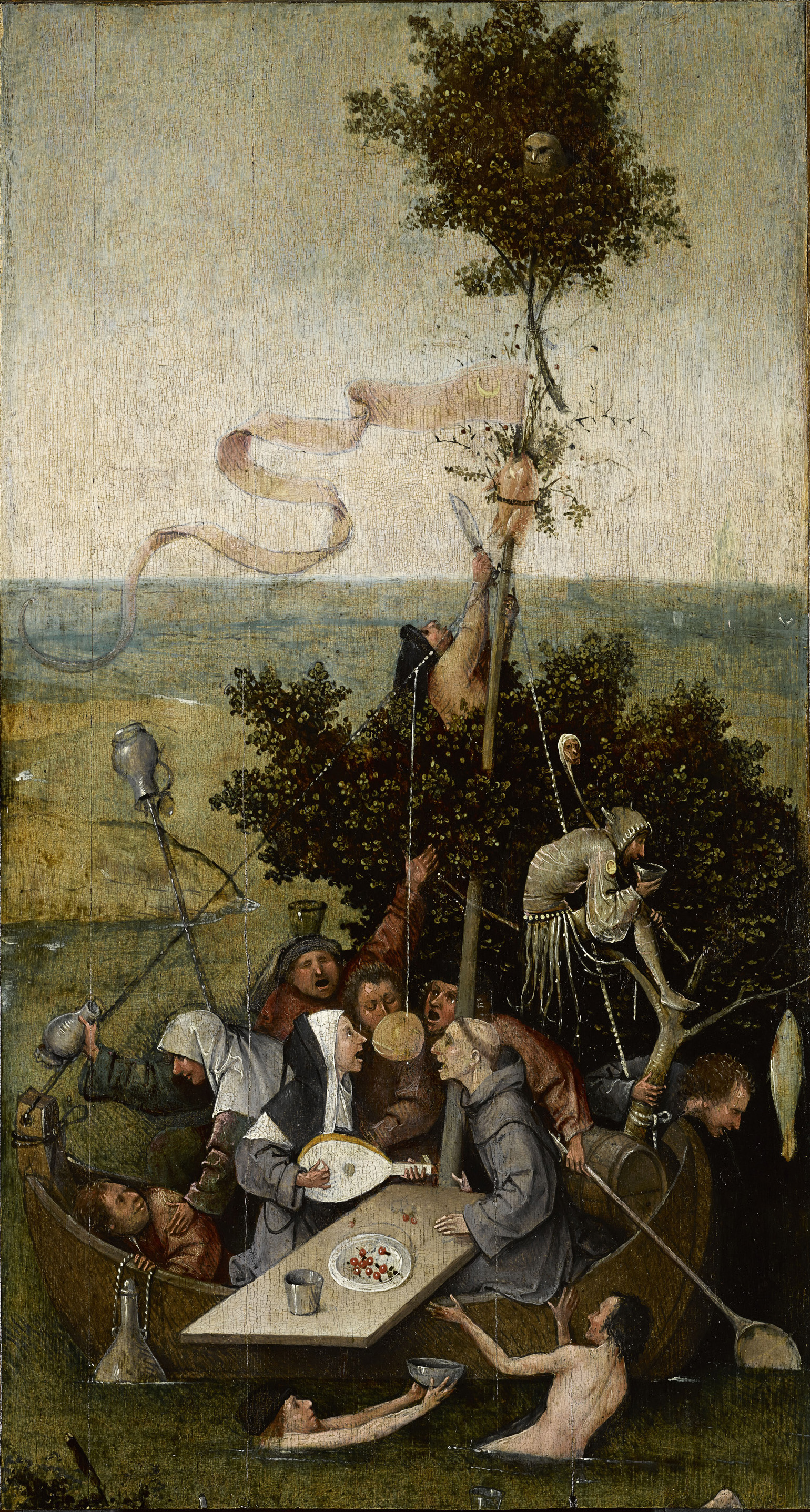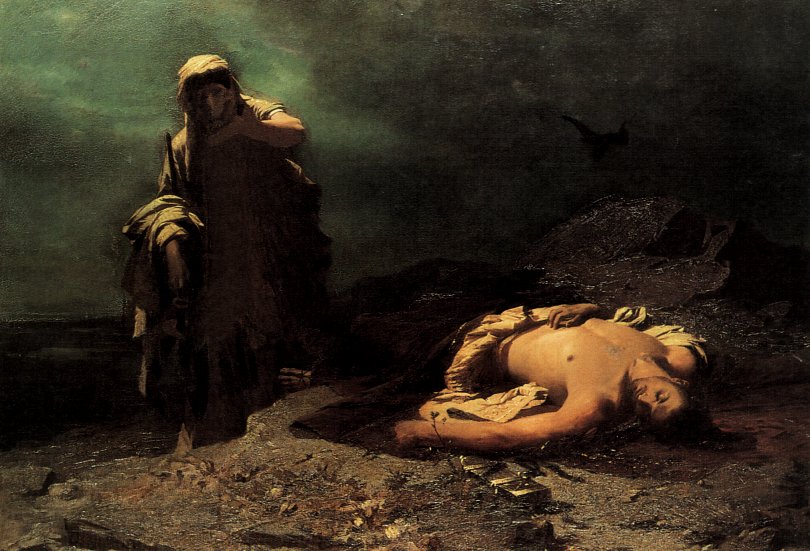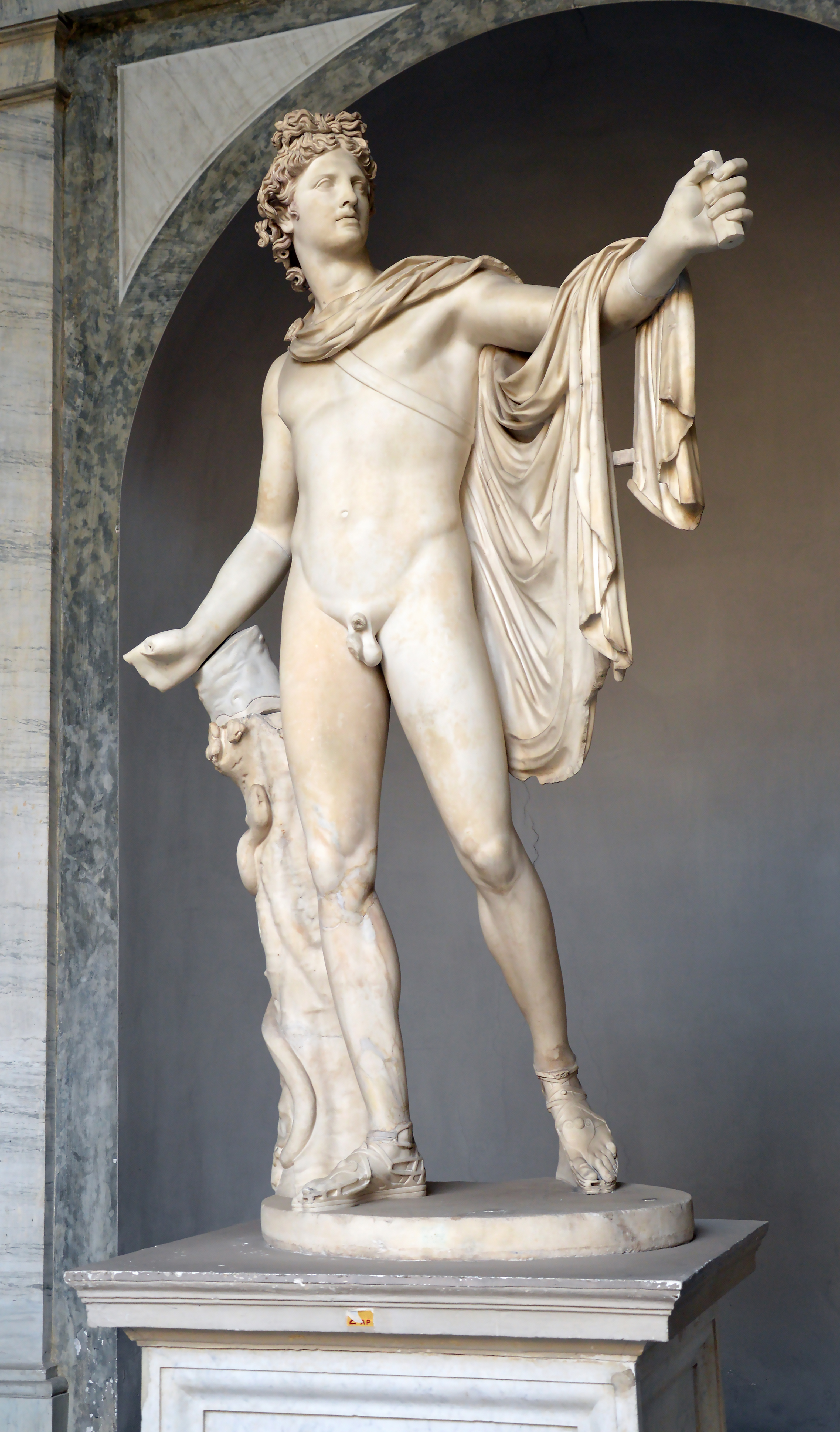Responses from Classicists
The following are high profile instances of scholarly responses to white supremacist appropriations of classical materials or advocacy of the Classics as white, Western heritage. The timeline below lays out when each of the instances discussed below were written, and by whom. This timeline begins in 2016 with a piece written by classicist Donna Zuckerberg, shortly after the election of Donald Trump, and recounts events through 2020. Each instance on this timeline has an explanation below, with links to the original articles. This list is not exhaustive and is open to addition and revision.
Donna Zuckerberg calls for Classicists to Respond on Eidolon, November 21, 2016

Helen on the Walls of Troy. Frederic Leighton.
In her 2016 article, written shortly after the election of Donald Trump, Donna Zuckerberg, Classics scholar and founder and editor-in-chief of the now-archival Eidolon online publication, responds to the increasing use of classical culture by alt-right groups to amplify a rhetoric of anti-feminism, racism, and white supremacist ideologies. Greece and Rome of antiquity are seen by alt-right groups as the foundation of a Western Civilization propagated solely by powerful white men. The discipline of Classics itself has been historically white and, although beginning to diversify, there has been a reluctance to let go of the narrative of superior cultural value and racialized claims to classical heritage. Zuckerberg’s 2016 article is a self-stated “call to arms for all classicists”, inciting Classicists to speak out against instances of white supremacist alt-right adoption of the Classics.
As her article details, the alt-right’s use of materials and personas from classical antiquity are decontextualized and self-serving. Such groups use classical antiquity to promote the rhetoric that racism and misogyny are a natural and necessary part of society where white men rule. Zuckerberg refers to this as the “self-mythologizing of the alt-right,”; focusing on the elite male characters of antiquity, while ignoring women, children, slaves, and any social or cultural context. The idea of masculinity as the foundation of the West is popular with alt-right groups, who have recently been validated by the election of Trump and now have a political and platform and social space to spread their classically infused rhetoric.
Zuckerberg urges classicists that it is their social responsibility to actively speak out against such cooptation and use their expertise to push back against alt-right receptions of the Classics. Responding to questions of what kind of impact scholars can realistically have, she suggests that classicists challenge the viewpoints of their colleagues and students on why studying Classics is important and what it means to a contemporary world, focus their own scholarship on the marginalized in antiquity and cite other scholars who do so, and engage with problematic alt-right receptions of classical antiquity.
You can read her article here.
Curtis Dozier Founds Pharos, Late 2017

Pharos of Alexandria. Maarten van Heemskerck.
Pharos is a thorough repository cataloging and responding to appropriations and misrepresentations of antiquity by hate groups in the United States. The site was founded by Curtis Dozier, a Classics scholar at Vassar College, in the year following Donna Zuckerberg's article How to be a Good Classicist under a Bad Emperor. Dozier talks about how the site came to be in a post on Eidolon shortly after its founding. The site is a collaborative project, relying on individuals to report instances and scholars to volunteer their time and expertise addressing the use of antiquity by hate groups to legitimize violent ideologies. Dozier notes that the purpose of the site is not necessarily to change the minds of hate group members, but to be a present public voice in the online world that actively pushes against false historical narratives. In essence, Pharos is a response to Zuckerberg's call for classicists to speak to a public audience as a way of combating hate group receptions of antiquity. The site is currently up to date and can be navigated by its 14 separate categories or by month and year. The site now also provides teaching resources for educators. Visit Pharos here.
Dorothy Kim on Medieval Studies and White Supremacy, August 28, 2017

Ship of Fools. Hieronymus Bosch.
Classics is not the only discipline engaging with embedded racism and far-right reception. Medievalist Dorothy Kim’s 2017 piece in the medieval studies blog In the Middle addressing racism in the classroom gained both positive and negative attention from fellow scholars. Kim is a professor of English at Brandeis University, and her work focuses on race, gender, digital humanities, medieval women’s literary cultures, and the alt-right, among other interests. Noting the long-established popularity of medieval Christian Europe with white supremacist groups, Kim asserts that educators need to explicitly disengage medieval history from far-right beliefs about the “pure white Middle Ages”. She criticizes complicity in teaching that reproduces white supremacist ties in the classroom, saying that as experts and educators it is necessary to take an active stance against white supremacist receptions of medieval European history. Kim challenges educators to critically examine their pedagogical practices and ask themselves whether they are actively and purposefully disengaging medieval materials from racist rhetoric. Noting that many college-age students are recruited into white supremacy groups, such as those in the Charlottesville rally, she foregrounds the necessity of directly addressing these kinds of uses of history in the classroom She says that this is a critical step for scholars to take in order to protect vulnerable students. Reflecting the call from Donna Zuckerberg, Kim’s challenge to scholars and educators is to convey to students that they are openly and actively against white supremacy. You can read her post here.
Rachel Fulton Brown Attacks Dorothy Kim, September 14, 2017

The Conjurer. Hieronymus Bosch.
Writing in response to Dorothy Kim’s call for educators to explicitly reject racist readings of history in the classroom, Rachel Fulton Brown railed against Kim on her personal blog, Fencing Bear at Prayer. Fulton Brown is a professor medieval history at the University of Chicago and far-right sympathizer. In a tone of mock outrage, Fulton Brown attempted to take Kim to task for calling medievalist educators to take a stance against white supremacy in the classroom. In a baffling argument against the inherent ties between medieval studies and white supremacy, Fulton Brown excerpted an antiphonal verse honoring the Virgin Mary. The verse makes reference to Mary as “black but beautiful”. She also discussed at length a stained-glass window at the cathedral of Chartres in France, which she interprets as portraying the Virgin Mary as black. The argument made was simple: given these two examples, medieval Christians did not care about race; and following this logic she, by proxy as a medieval scholar, could therefore not be a white supremacist. Her final declamation was to liken herself to the Virgin Mary and denounce Kim as a fearmonger. In addition to her argument, Fulton Brown also makes textual and visual reference to Dr. William Chester Jordan, a medieval scholar of color, to prove that the discipline is not associated with white supremacy. Additionally, she posts at the head of her response a photo of Dorothy Kim, which raises questions about the intentions of her post and whether this was an attempt at doxxing. Fulton Brown has long been deeply associated with the far-right public figure Milo Yiannopoulos, and has written for Breitbart, putting her in the company of the alt-right and white supremacy. Her response garnered a significant amount of attention and was written about shortly afterwards by Donna Zuckerberg on Eidolon. You can view her blog post here.
Donna Zuckerberg responds to Rachel Fulton Brown’s blog post, October 5, 2017

Antigone in front of the dead Polynices. Nikiforos Lytras.
Not a month after Fulton Brown posted her response to Dorothy Kim’s article, Donna Zuckerberg responded in her own article on Eidolon calling Fulton Brown’s post an attack on Kim and highlighting the ways that the post was problematic and unlike typical academic discourse, linking to the critiques of Fulton Brown already made by other scholars. Zuckerberg devotes the remaining article to a discussion of expertise and how engagements with alt-right and white supremacists are defined by a denial of expert scholarship and scholars, often through the practice of violent trolling. Her point stands, that correcting the mistakes that white supremacists make when they adopt medieval and classical materials, language, and personas is an ineffective tactic. As she says, attempts at educating white supremacists are unproductive because their interpreation of medieval and classical history is “an ideologically driven choice”. Zuckerberg’s discussion of expertise reinforces that the alt-right’s denial of authoritative scholarly expertise is incredibly powerful and difficult to address from a logical standpoint, as calling them out when they are wrong will not affect a change in their views. But creating such a discourse is meaningful in other ways. Namely, to bring into critical conversation and examine the origins and representations of official histories. Returning to Fulton Brown’s response to Dorothy Kim, Zuckerberg suggests that Fulton Brown was incited to write her post out of such a feeling of being called out. Fulton Brown's response, which began with a mockery of Kim as a person of color, exemplifies Zuckerberg's points: Fulton Brown both denied her complicity in perpetuating white supremacist use of medieval history in violent rhetoric, and attacked Kim's expert authority. You can read the article on Eidolon here.
Heidi Morse on #ProjectSiege, February 15, 2018

Apollo Belvedere. After Leochares.
In her article, Classics and the Alt-Right: Historicizing Visual Rhetorics of White Supremacy Morse parses the rhetorical messages utilized by Identity Evropa in their campaign advocating white supremacist ideologies on college campuses, including the University of Michigan where Morse is a Lecturer in the Department of Afroamerican and African Studies. The 2016 campaign, #ProjectSiege, was a recruitment effort put into action on college campuses, aimed at recruiting white students. #ProjectSiege was done by posting flyers promoting white supremacy on an estimated 41 different campuses. Some of the flyers had photos of statues of Hercules and Apollo Belvedere with slogans such as “Protect Your Heritage” and “Our Future Belongs to Us”. Part of the alt-right Identity Evropa relies, as many other alt-right groups and figureheads, on the “imagined genealogy”, as Morse says, that claims Greek and Roman history and heritage as exclusively white, European heritage. Morse notes, as have many others, that the use of Greek and Roman statuary as proof of white supremacy has a long history beginning in scientific racism, and these sources are still cited by white supremacist groups today. And as classical art and writing are imbued with cultural authority, the pairing of the images of Greek and Roman statuary and propagandistic rhetoric send messages to incite action. Understanding the social and cultural power of these rhetorics, Morse echoes earlier sentiments that classicists must take responsibility to respond to racist uses of Greco-Roman culture and create a more public discussion regarding the diversity of classical reception. You can read her article here, and more about her work here.
Sarah Bond Responds to alt-right use of Spartan Culture and Lanuage, May 7, 2018

The Selection of Children in Sparta. Jean-Pierre Saint-Ours.
In her article on Eidolon, classicist Sarah Bond addresses the popularity and idealization of Sparta and Spartan culture by alt-right figurehead Steve Bannon. Bond discusses why idealizing and imitating the Spartan model of society and politics is problematic: Sparta was known for practicing eugenics, for fear of foreigners, and for citizenship based in racial purity. She highlights the use of Spartan racial ideals in the eugenics policies of Nazi Germany, as studied by Helen Roche, and the eugenics movement of the 20th century in the U.S. Bond’s point is not that Spartan culture ought to be rejected outright, but that the desire to imitate Sparta comes with the necessity of understanding the merits and flaws of its culture and recognizing that, as her title states, this is not Sparta. Bond suggests that the fascination with Sparta needs to be realistically complicated to include its full cultural context. Bond draws a helpful parallel by citing the work of Ijeoma Oluo, who discusses the difficulties of navigating "problematic faves" in media and popular culture. You can read Bond's article here.
Denise McCoskey on the Racialization of Classics, August 2018
 Fire of Troy. Miquel Bestard.
Fire of Troy. Miquel Bestard.
Denise McCoskey, a Professor of Classics and affiliate of Black World Studies at Miami University in Ohio, addresses the history of how classical antiquity has been racialized in the West in an article reflecting on Charlottesville and #ProjectSiege. She argues that the racialization of the classics early in U.S. history has lead to the current reception of classical materials by the alt-right and other white supremacy and hate groups. Such groups have embedded classical antiquity into their imagery, slogans, and personas to legitimize their political movements, harass minority groups and scholars who oppose them, and to justify violent behavior. McCoskey writes, specifically, about the turn in 18th and 19th century classical reception from a diverse cultural inheritance to racially exclusionary cultural inheritance. To contextualize this, she gives a history lesson in what is known through art and writing about the social and cultural perceptions of race and understandings of human-environmental interactions in ancient Greece. As McCoskey iterates throughout her article: whiteness was not a concept used in ancient Greek and Rome. Conceptions of race as biology in the west are tied to colonialism and to early scientific studies of human anatomy. McCoskey notes that the field of classics was concurrently emergent with changing ideas of race in the U.S., and this is when a leap was made in the perception of classical antiquity, and statuary in particular. Classical statuary was held up as representative of past perfection, their contemporary counterpart in European and early American views being people of European descent. This parallel marks a significant distortion and racialized antiquity to support narratives of the racial superiority of Europeans. Using the lens of race to understand and interpret classical antiquity has precipitated modern discourse on eugenics and promoted notions of some races as dangerous to Western civilization (itself a social construction). Given that the concept of Western Civilization as white-led global progress strongly permeates the social and political landscape in the U.S., McCoskey advocates for critical attention to ideas of race within the Classics. You can read her article here.
Mary Frances Williams at the 2019 SCS Annual Meeting
Following a presentation by Dan-el Padilla Peralta at the 2019 Society for Classical Studies (SCS) Annual Meeting on the inherent and problematic white male hegemony in the academic discipline of Classics, independent classicist Mary Frances Williams was forced to stop speaking and leave the “Future of Classics” panel during Q&A at the 2019 Annual Meeting of the Society for Classical Studies. Williams was directed out after diverting the panel discussion by arguing in defense of what she referred to as a traditional Classics pedagogy that need not focus on feminist or racially diverse scholarship. Williams argued that the “classic Classics” have been cast aside in favor of women’s studies and ethnic studies courses in the discipline, implying that the latter do not have the same merit as the corpus of ancient Greek and Roman writers and philosophers. At her assertion that Classics is important because it is “Western Civ”, panelist and classicist Sarah Bond interrupted her to argue that Classics is not, in fact, “Western Civ”. As Williams continued to argue for more courses focused on traditional Classics materials, Bond interrupted her to note that she was only listing works written by men. Williams reinforced her view that the value of scholarship and, presumably, historical works, was based solely on merit. At fever pitch, Williams pointed to panelist Dan-el Padilla Peralta, a highly respected Princeton classicist, and remarked that “You may have gotten your job because you are Black,” but that she preferred to think that he got his job because of merit. At this, several audience members in attendance convened upon Williams while Peralta responded that if the discipline of Classics comes to stand for Williams' values, his hope would be for the swift death of the field. After being removed, Williams was informed that she would no longer be welcome to participate in the SCS. Additionally, Sarah Bond was reprimanded by the SCS for what they referred to as unprofessional behavior during her interaction with Williams. Williams, Bond, and Padilla have all written in response to this incident- as have numerous other scholars.
Pharos Report on the White Supremacy and the Past and Future of Classics Roundtable, January 24, 2020
 The Death of Priam. Taddeo Kuntze.
The Death of Priam. Taddeo Kuntze.
This report, published on Pharos is the result of a round table discussion from the 2020 Society for Classical Studies (SCS) Annual Meeting. The round table developed three questions regarding how scholars and the discipline of Classics perpetuates racial inequality to guide discussion. The round table- attended by a mix of twenty professors, high school teachers, and graduate students- reproduced much of the discussion already in play, but has allowed for a strong synthesis that encompasses numerous resources and ideas. The report then represents a significant resource for anyone interested in becoming more familiar with the ties between Classics and white supremacy, as well as the efforts of scholars to make the field more inclusive and steer the discipline in a more progressive direction. Focusing on how the Classics has contributed to establishing and maintaining notions of white superiority and dominance, much of the report revolves around social and political power and constructions of Eurocentric narratives to justify domination and exploitation. The report discusses the erasure of people of color from antiquity, as well as the construction of white identity. Central to this report is the prevalence of such racialized readings of classical antiquity in the major institutions of the U.S., including education and government. The report does not only look to the past for explanations of Classics-white supremacy ties, however. Understanding the ways that Classics intersects and is entangled with the production and reproduction of racist ideologies is paramount for turning the discipline into a space expertly critical of white supremacy. You can read the article here.

